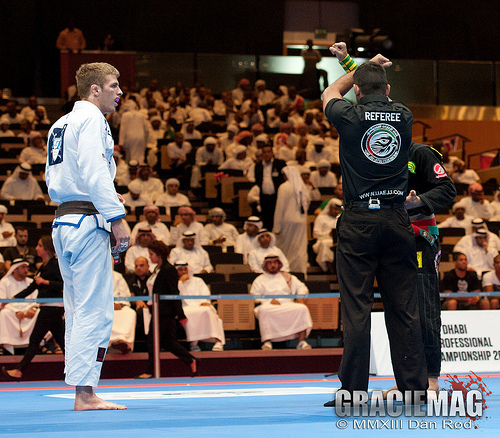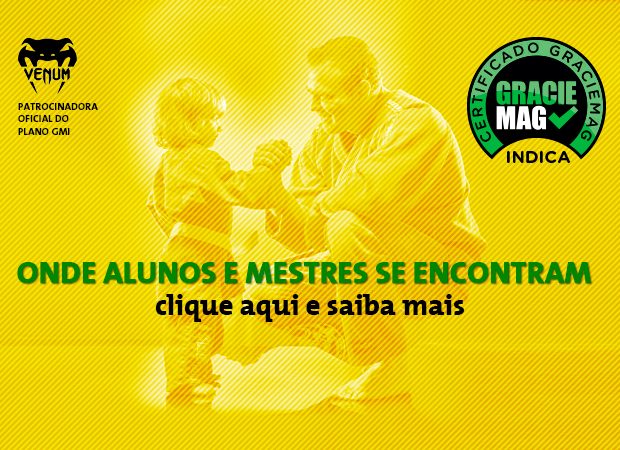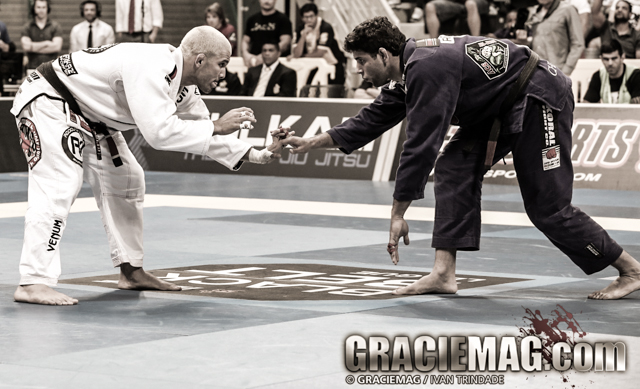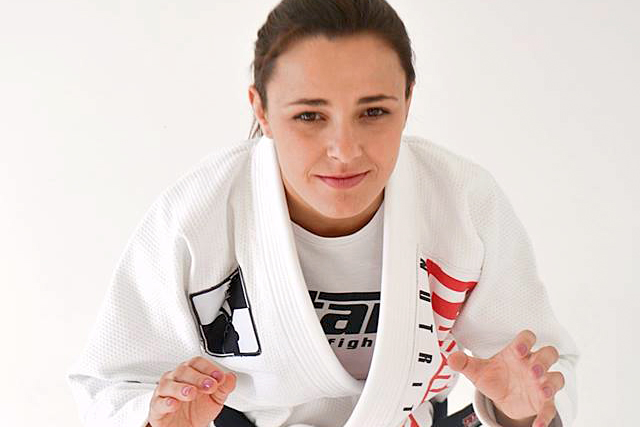The fan side of almost all of us applauded the attitude of the referee to disqualify the two finalists of the brown belt adult absolute in Abu Dhabi, during the WPJJC 2013.
This is because, deep down, we all wanted to watch an electrifying fight, with comings and goings of these two great Jiu-Jitsu athletes.
It turns out that combats between two great fighters not always translate into big fights.
Does anyone remember the moments before the fight between B.J. Penn and Matt Serra in September 2002? Most of us awaited the greatest ground combat in UFC history! And what we saw was a battle fought standing up. I bet neither of these two champions consider that episode in the list of their best moments.
This is just one example. Fabio Gurgel and Amaury Bitetti fought countless times in the 1990s, and their contests were rarely decided by more than two points. The most interesting thing is that most people harshly criticized the technique of the winner (usually Amaury), but the reason for the restrained fight was the highest level techniques of both were equal, not by a lack of technique like it was suggested.
Even one of the greatest submitters of the late 1990s, Nino Schembri, found himself holding the fight during a match in which he opened five points ahead of another submitting monster, Fernando Margarida, in a fight held in São Paulo.
And even someone who is possibly the greatest submitter in the history of Jiu-Jitsu competition, Roger Gracie, spent a good amount of time “resting” in Marcus Buchecha’s closed guard during the confrontation of the two in Metamoris, simply because it was the most prudent thing to do at that moment.
We need to distinguish bravery from intelligence and strategy, not encouraging an immoderate courage, bordering suicide.
Again, our frustration as fans watching Keenan Cornelius and Paulo Miyao not coming to kill and die is easier to reflect a perverse side of celebrating the disqualification of both.
But whether you agree or not with the attitude of the referee, it is not fair to judge the Jiu-Jitsu of these two athletes by the fight against one another, and use it to deconstruct the technical qualities of both.
Leveled and monotonous fights are not a privilege of the current generation; they always existed and will always exist. But if you want to analyze the techniques and momentum of two of the best brown belts today, it makes more sense to observe their fights against other opponents.
You will then notice that Paulo Miyao impresses, taming monsters far beyond his 61kg since he was a blue belt, and that the percentage of submissions performed by Keenan Cornelius is as high as his notable predecessors as “kings” of brown belt, such as Ronaldo Jacare, Marcio Pe de Pano and Fernando Margarida.
I don’t even know Keenan and Paulo personally. But I admire the Jiu-Jitsu they present far beyond what is perceived in the confrontation between them.





